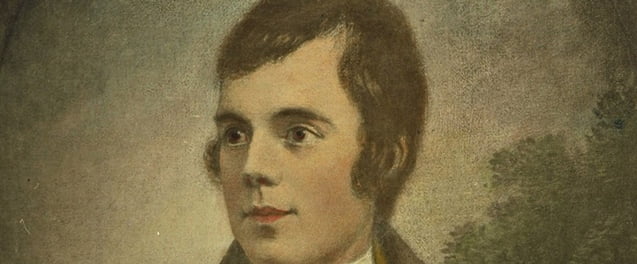
Robert Burns’ egalitarian views
On this day in 1759 the Scottish poet Robert Burns was born. A Customs Officer, he travelled around Scotland and enjoyed dalliance with many pretty girls. He is known to have fathered 12 children and is estimated to have over six hundred living descendants.
Burns was a great egalitarian who supported the French Revolution, as is shown in part of his famous poem, A Man’s a Man for A’That:
Is there for honest Poverty
That hings his head, an’ a’ that;
The coward slave, we pass him by,
We dare be poor for a’ that!
For a’ that, an’ a’ that.
Our toils obscure an’ a’ that,
The rank is but the guinea’s stamp,
The Man’s the gowd for a’ that.
Then let us pray that come it may,
(As come it will for a’ that,)
That Sense and Worth, o’er a’ the earth,
Shall bear the gree, an’ a’ that.
For a’ that, an’ a’ that,
It’s coming yet for a’ that,
That Man to Man, the world o’er,
Shall brothers be for a’ that.
Burns died in 1796. His strong views found favour with Communist regimes in later years, and he is still highly popular in Russia.
Today I will reflect on the egalitarian views of ‘The Scottish Bard’, and treat all people as equals.
